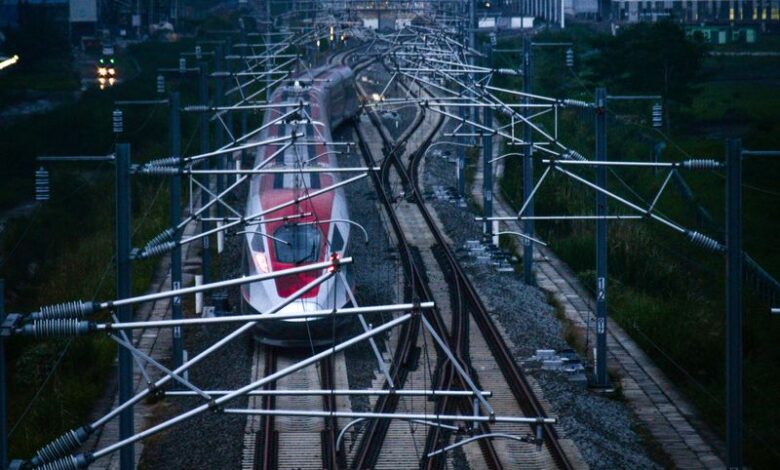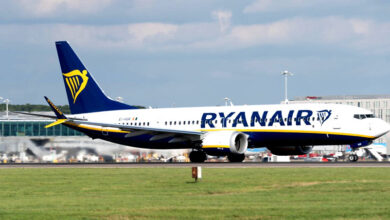Indonesia’s Ambitious High-Speed Rail Project Faces Fresh Challenges

The grand vision of President Joko Widodo to establish a cutting-edge high-speed train service in Indonesia has encountered yet another setback. As revealed in an internal document, the transport ministry and three consulting firms have expressed reservations about the China-funded consortium’s plan to commence full commercial operations of the $7.3 billion project in August.
The high-speed rail, spanning 142 km from Jakarta to Bandung, serves as a flagship endeavor for both President Widodo and China’s Belt and Road Initiative (BRI). However, it has been plagued by financial woes, as costs have escalated by $1.2 billion, and the project is now four years behind schedule.
The successful inauguration of the railway line during the upcoming Independence Day celebrations would have undoubtedly bolstered the ruling party’s position ahead of next year’s general election. On the contrary, any further delays would undoubtedly provide ammunition for the opposition, tarnishing China’s credibility in delivering significant projects within the region, cautioned Teuku Rezasyah, an international relations analyst at Padjadjaran University.
As the proposed August commercial launch approaches, the project faces fresh obstacles. The Chinese participants of the consortium insist on obtaining a full operational worthiness certificate for the line, despite the presence of an incomplete station, as indicated in a comprehensive 48-page presentation reviewed by Reuters. Nevertheless, the transport ministry, along with consulting firms Mott MacDonald, PwC, and local law firm Umbra, have proposed a revised timeline, suggesting that full-fledged commercial operations could commence in January 2024, according to the Progress Update report dated May 14.
The report, composed in the local language, warns of the potential risk of delaying the commercial operations target in August to complete all construction by December 31. Additionally, financial restructuring at PT Wijaya Karya Tbk (WIKA), an Indonesian state-owned construction firm with an indirect minority stake in the consortium, further hampers the project’s working capital needs. The project has already amassed outstanding payments totaling at least $381.75 million, according to another internal document.
Mahendra Vijaya, corporate secretary of WIKA, affirmed the company’s financial capacity to complete the remaining work but emphasized the consortium’s obligation to remunerate them for work already accomplished.
Indonesia is currently engaged in negotiations with China for an additional $560 million loan. Furthermore, the country is seeking an interest rate of 2.8% for the portion of the loan denominated in yuan, which is lower than the offer of 3.46% from the China Development Bank (CDB), according to documents dated May 18.
Septian Hario Seto, a senior official with the investment coordinating ministry, disclosed that debt negotiations with CDB are centered on the interest rate. The railway project aims to commence a free trial with passengers in mid-August, with paid trips scheduled for September and the incomplete station expected to be completed by November.
Notably, PwC declined to comment on the matter, while China-backed consortium PT KCIC, Mott MacDonald, Umbra, CDB, and China’s embassy in Jakarta have not yet responded to requests for comment.
The project’s history has been marred by delays, doubts, and financial challenges. The additional loan is necessary to address a staggering $1.2 billion cost overrun. PT KCIC secured the project in 2015 by offering a lower bid than its Japanese counterpart, with an estimated completion date of 2019. However, land ownership disputes, concerns regarding economic viability, and the onset of the COVID-19 pandemic have consistently disrupted progress.
Delays and cost escalations are not uncommon in high-speed rail projects worldwide, including in Western countries. Last year, an executive from





